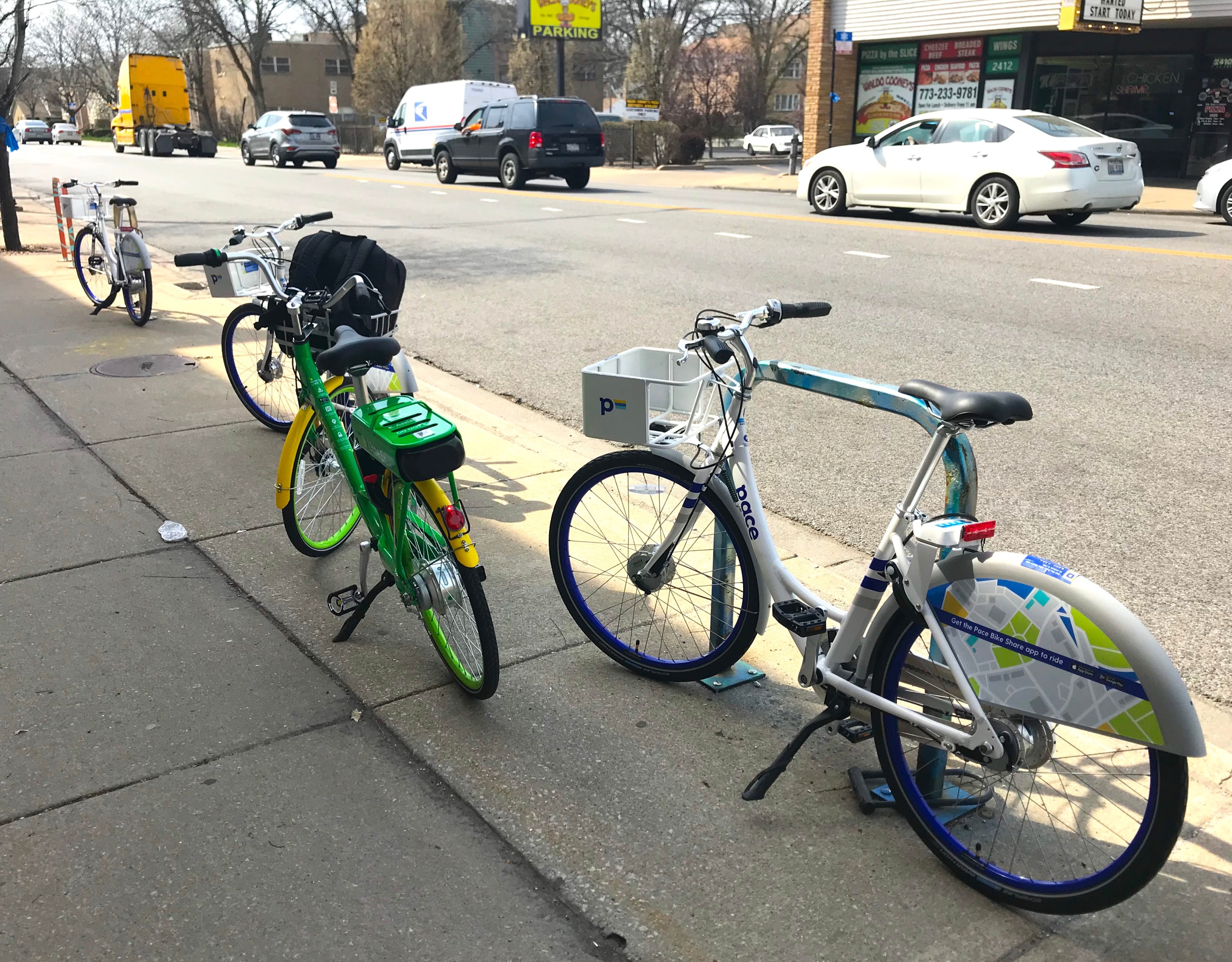Update 6/29/18 11:30 AM: The Tribune reported today that Jump Mobility, which was recently purchased by Uber, will be joining the Chicago dockless bike-share pilot, eventually deploying 250 "lock-to" electrical-assist bikes with built-in U-locks. (Streetsblog Chicago reported that Jump was planning to come to town almost two months ago.) This means that, even if LimeBike and Ofo drop out due to the lock-to requirement, the total number of DoBi Cycles will rise from the current 350 to 250.
Today representatives from South Side community groups and other civic organizations today told officials from the mayor’s office and the Chicago Department of Transportation that they’re concerned that the city’s Far South Side dockless bike-share pilot is resulting in relatively few rides, largely due to the limited number of cycles.
Chicago’s dockless permitting guidelines requires the three dockless vendors -- Pace, LimeBike, and Ofo -- to provide the city with ridership data by June 12, although officials haven’t shared this info with the general public yet. This afternoon staff from the mayor’s office and CDOT held a conference call with stakeholders to provide a summary of the data and solicit input about the pilot.
Invited participants included reps from Equiticity, the Coalition for a Better Chinese American Community, We Keep You Rollin’, SRAM, West Town Bikes, Go Bronzeville, Active Trans, Sacred Keepers Sustainability Lab, AARP, Lurie Children’s Hospital, Slow Roll Chicago, Grow Greater Englewood, Health and Medicine Policy Research Group, Environmental Law and Policy Center, and Woods Fund Chicago, as well as other interested citizens.
Currently Pace, which uses “lock-to” bikes with a built in cable lock for securing the cycle to a rack or pole, is allowed to deploy 250 cycles. LimeBike and Ofo, which use wheel-lock-only cycles, are only permitted to have 50 bikes each on the street, for a total of 350 cycles. After this Saturday all bikes must be lock-to, and LimeBike and Ofo have indicated that they will drop out of the pilot if the city follows through with this rule. LimeBike staffers recently noted that even 350 cycles is a drop in the bucket for a coverage area (almost all of Chicago south of 79th Street) that includes about 700,000 residents, since Seattle, with roughly the same population and good dockless ridership, has about 10,000 DoBi bikes.
According to a call participant who requested anonymity, the city officials indicated that they’re still having internal conversations about how to move forward after July 1, but there was no indication that they’re planning to change the rules within the next couple of days. “If they don’t get rid of the lock-to rule, we’re going to lose two-thirds of the dockless companies, and I don’t think anyone wants that to happen,” the participant told me.
The participant didn’t provide specifics on ride data but said the city is still analyzing the numbers. “But there was a general concern among stakeholders that the number of bikes and rides taken is too low, and that the program is not showing the results the city had hoped for,” they said. “They were concerned that even 350 bikes is not adequate.”
The person added that they feel the city has done a good job of including a number of local community-based organizations in the discussion. “But it’s a little surprising that this discussion hasn’t moved beyond a relatively small number of stakeholders into public discourse,” they said.
Will the city relax the rules or, in effect, reduce the already-small number of dockless bikes in Chicago by almost a third? We should know come Sunday.





